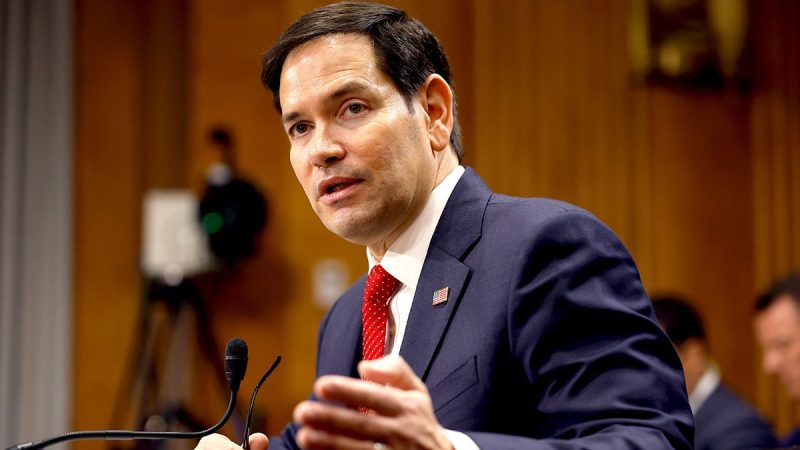Secretary of State Marco Rubio has denied Palestinian leaders visas to attend next month’s United Nations General Assembly, citing longstanding U.S. law that prohibits recognition of Palestinian statehood and sanctions the Palestinian Authority for so-called ‘pay for slay’ payments to terrorists.
According to internal documents reviewed by Fox News, Rubio signed off on recommendations that would block visas for senior officials of the Palestinian Authority (PA) and the Palestine Liberation Organization (PLO), including PA President Mahmoud Abbas.
‘In compliance with the laws and national security interests of the United States, Secretary of State Marco Rubio is denying and revoking visas from members of the Palestine Liberation Organization (PLO) and the Palestinian Authority (PA) ahead of the upcoming UN General Assembly,’ State Department spokesperson Tommy Pigott said in a statement on Friday.
‘Before they can be taken seriously as partners for peace, the PA and PLO must repudiate terrorism, lawfare campaigns at the ICC and ICJ, and the pursuit of unilateral recognition of statehood. The PA Mission to the UN will receive waivers per the UN Headquarters agreement. The United States remains open to re-engagement should the PA/PLO demonstrably take concrete steps to return to constructive engagement. The Trump Administration does not reward terrorism.’
The move prevents Palestinian leaders from addressing the annual U.N. gathering in New York next month, a stage they have frequently used to advance unilateral recognition of statehood.
The decision stems from findings under the Palestinian Liberation Organization Commitments Compliance Act (PLOCCA) and the Middle East Peace Commitments Act (MEPCA), which determined the PA and PLO were out of compliance with U.S. commitments by ‘unilaterally declaring Palestinian statehood; glorifying violence; promoting antisemitism; and providing material support to terrorists.’ The sanctions mandate an automatic denial of visas for at least 180 days.
While the United States has previously denied visas on a case-by-case basis — including for members of the Iranian delegation — officials acknowledged in the documents that Washington has never before barred an entire delegation from attending the U.N. General Assembly. The internal guidance argues that the unprecedented step is justified because Palestinian leaders plan to use the September forum to push a ‘constitutional declaration’ of independence, a move the U.S. views as a major propaganda victory for Hamas and a threat to ceasefire talks in Gaza.
The recommendations call for rejecting visa applications from Palestinian officials, declining a waiver for Abbas himself, and revoking visas issued before July 31 for PLO and PA members. However, the guidance makes one exception: permanent staff and dependents at the Palestinian U.N. Observer Mission would be allowed to remain under U.S. obligations to the U.N. Headquarters Agreement.
U.S. officials wrote that granting waivers ‘would undermine the credibility’ of existing sanctions and embolden the PA to pursue unilateral recognition efforts. By contrast, enforcing the visa bans was described as a ‘low-cost, high-impact action’ to reinforce U.S. policy.
Since 2012, Palestinian representatives have held non-member observer status at the U.N., a designation that allows them to participate in debates but not vote. While the U.S. has pledged under the U.N. Headquarters Agreement not to obstruct travel for official U.N. business, the documents argue that the PA’s use of the General Assembly to advance statehood recognition falls outside routine mission work and poses a direct challenge to U.S. national interests.
Rubio’s decision marks a historic departure from the U.S. practice of accommodating U.N. participation, setting up a likely clash with international bodies and U.S. allies that continue to recognize Palestinian representatives.
The move follows decades of friction between Washington and the United Nations over Israel-related issues, most especially after the Hamas attack on October 7, 2023.
The United States has used its Security Council veto power dozens of times to block resolutions critical of Israel — more than any other permanent member has used its veto for a single ally.
